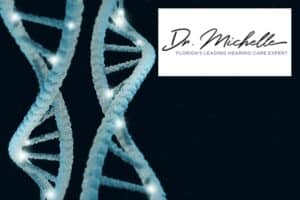In today’s modern society, noise pollution has become a prevalent concern for individuals of all ages. Whether it’s the constant hum of traffic, the clamor of construction sites, or the noise generated by industrial activities, our daily lives are bombarded with excessive and potentially harmful sounds. Understanding the impact of noise pollution on our hearing health is of utmost importance, especially as we age and become more susceptible to hearing loss and related conditions.
Understanding Noise Pollution
Before delving into the impact of noise pollution, let’s first define what it entails. Noise pollution refers to the excessive and disruptive sound present in our environment. It encompasses a variety of sources, including traffic, construction sites, airports, factories, and even recreational activities like concerts and sporting events. While some sounds may be harmless, others can pose a significant risk to our hearing health.
Decibel levels serve as a vital tool in measuring and differentiating between harmful and non-harmful sounds. For instance, prolonged exposure to sounds above 85 decibels (dB) can lead to permanent hearing damage, while short bursts of sounds at higher levels can cause immediate harm. It’s crucial to recognize and acknowledge the potential dangers of noise pollution.
The Mechanism of Hearing
To understand the impact of noise pollution on our hearing health, we must grasp the intricacies of how our ears process sound. The process begins with the outer ear, where sound waves enter and travel through the ear canal. These waves then reach the middle ear, where they vibrate the eardrum and tiny bones called ossicles.
The inner ear plays a significant role in converting these vibrations into electrical signals. It houses delicate structures, including the cochlea, responsible for transforming sound waves into neural impulses that can be interpreted by the brain. Protection of these structures is paramount to maintaining optimal hearing health.
The Impact of Noise Pollution on Hearing Health
Exposure to excessive noise levels can lead to both temporary and permanent hearing loss. Temporary hearing loss, also known as temporary threshold shift, may occur after attending a loud concert or any event with prolonged exposure to high-volume sounds. Fortunately, temporary hearing loss typically resolves within a few hours or days.
On the other hand, noise-induced hearing loss (NIHL) is a permanent condition caused by prolonged or repeated exposure to loud noises. It can result from occupational hazards, leisure activities such as hunting or listening to music at high volume through headphones, and even everyday environmental noise. NIHL affects the sensory hair cells within the cochlea, causing irreversible damage that compromises our ability to hear.
Another common consequence of noise pollution is tinnitus, the perception of ringing, buzzing, or other phantom sounds in the ears. Although not a direct form of hearing loss, tinnitus often occurs alongside it, with noise exposure being a significant contributing factor. The persistent and bothersome nature of tinnitus can significantly impact one’s quality of life.
It’s important to note that the effects of noise pollution on hearing health are accumulative. Even if individual instances of exposure may seem insignificant, repeated encounters with excessive noise can lead to more severe and long-lasting consequences.
Other Health Effects of Noise Pollution
Beyond its impact on our hearing, noise pollution can also have detrimental effects on our overall health and well-being. Excessive noise has been linked to increased stress levels, anxiety, and sleep disturbances. Continuous exposure to loud sounds can disrupt our ability to relax and rest, leading to chronic fatigue and a compromised immune system.
Studies have shown that noise pollution can also affect our cognitive function and productivity. The constant presence of disruptive sounds can impair concentration, memory, and problem-solving abilities. This can be especially concerning for older adults who may already be experiencing age-related cognitive decline.
Furthermore, emerging research suggests potential links between noise pollution and cardiovascular health. Exposure to high levels of noise has been associated with increased blood pressure, heart rate, and even the risk of heart disease. It is crucial to be aware of these potential health implications and take appropriate measures to mitigate the impact of noise pollution.
Protecting Your Hearing from Noise Pollution
Fortunately, there are steps we can take to protect our hearing from the harmful effects of noise pollution. The first and most crucial step is awareness and education. Understanding the risks and consequences of noise pollution empowers us to make informed decisions about our environments and the activities we engage in.
In noisy environments, such as construction sites or concerts, it is essential to utilize hearing protection devices, such as earmuffs or earplugs. These simple yet effective tools can significantly reduce the intensity of sound reaching our ears, preserving our hearing health.
Implementing noise control measures at home and in the community is another proactive step towards safeguarding our hearing. This can involve minimizing the use of loud equipment, choosing quieter appliances, and advocating for noise reduction initiatives in our neighborhoods.
Seeking Professional Help
Regular hearing screenings and check-ups are essential for maintaining optimal hearing health, especially in the presence of noise pollution. Audiologists are trained professionals who can provide personalized advice on hearing protection measures and recommend suitable hearing aids if necessary.
In cases where noise-induced hearing loss or tinnitus has already occurred, a consultation with Dr. Michelle is highly recommended. She can help identify the extent of damage, provide treatment options, and suggest strategies to manage the accompanying symptoms. From hearing aids to sound therapy, audiologists offer a range of solutions tailored to each individual’s needs. Remember, our ability to hear is precious, and it’s never too late to start taking care of it.



